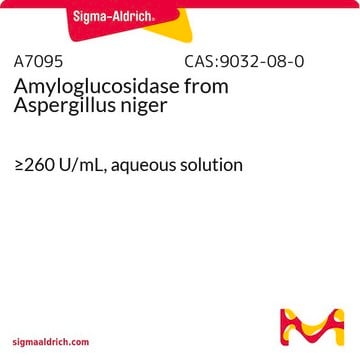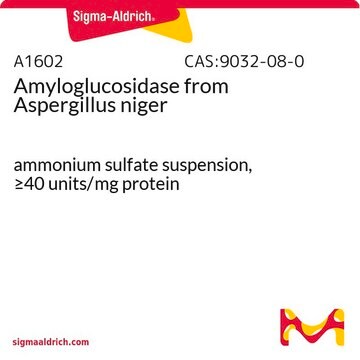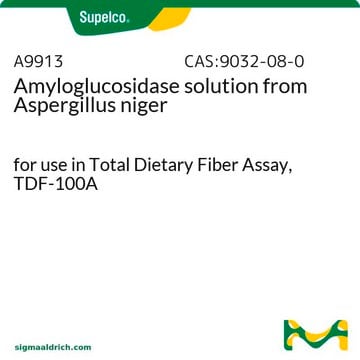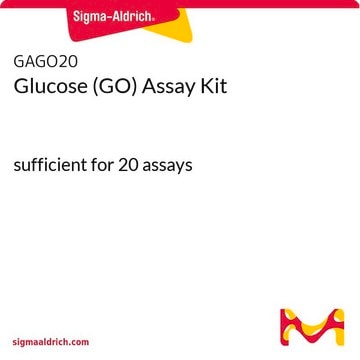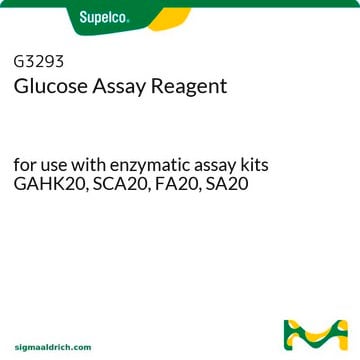A7420
Amyloglucosidase from Aspergillus niger
lyophilized powder, 30-60 units/mg protein (biuret), ≤0.02% glucose
Synonyme(s) :
1,4-α-D-Glucane glucohydrolase, Exo-1,4-α-glucosidase, Glucoamylase
About This Item
Produits recommandés
Forme
lyophilized powder
Activité spécifique
30-60 units/mg protein (biuret)
Composition
protein, ≥80%
Caractéristiques du produit alternatif plus écologique
Waste Prevention
Design for Energy Efficiency
Learn more about the Principles of Green Chemistry.
sustainability
Greener Alternative Product
Impuretés
≤0.02% glucose
Autre catégorie plus écologique
, Enabling
Température de stockage
−20°C
Vous recherchez des produits similaires ? Visite Guide de comparaison des produits
Description générale
Application
Actions biochimiques/physiologiques
Définition de l'unité
Forme physique
Autres remarques
Inhibiteur
Mention d'avertissement
Danger
Mentions de danger
Conseils de prudence
Classification des risques
Resp. Sens. 1
Code de la classe de stockage
11 - Combustible Solids
Classe de danger pour l'eau (WGK)
WGK 3
Point d'éclair (°F)
Not applicable
Point d'éclair (°C)
Not applicable
Équipement de protection individuelle
Eyeshields, Gloves, type N95 (US)
Certificats d'analyse (COA)
Recherchez un Certificats d'analyse (COA) en saisissant le numéro de lot du produit. Les numéros de lot figurent sur l'étiquette du produit après les mots "Lot" ou "Batch".
Déjà en possession de ce produit ?
Retrouvez la documentation relative aux produits que vous avez récemment achetés dans la Bibliothèque de documents.
Les clients ont également consulté
Notre équipe de scientifiques dispose d'une expérience dans tous les secteurs de la recherche, notamment en sciences de la vie, science des matériaux, synthèse chimique, chromatographie, analyse et dans de nombreux autres domaines..
Contacter notre Service technique